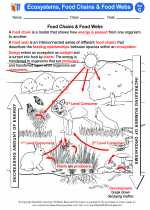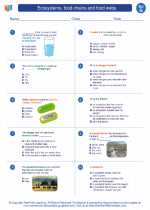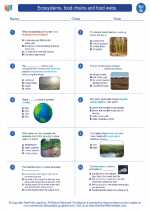Nervous System
The nervous system is a complex network of nerves and cells that carry messages to and from the brain and spinal cord to various parts of the body. It is responsible for coordinating and controlling many body activities and functions.
Structure of the Nervous System
The nervous system is divided into two main parts: the central nervous system (CNS) and the peripheral nervous system (PNS).
Central Nervous System (CNS)
The CNS consists of the brain and spinal cord. It is the control center of the body and processes information received from the sensory organs and sends out instructions to the rest of the body.
Peripheral Nervous System (PNS)
The PNS includes all the nerves outside the CNS that extend to the limbs and organs. It is further divided into the somatic nervous system (voluntary control of body movements) and the autonomic nervous system (involuntary control of internal organs).
Functions of the Nervous System
The nervous system has three main functions: sensory, integrative, and motor.
Sensory Function
The sensory function involves gathering information from both inside and outside the body. This is done by sensory receptors, which send signals to the CNS to be processed.
Integrative Function
The integrative function involves processing and interpreting the sensory information, which then leads to a response or action.
Motor Function
The motor function involves carrying out the response or action by sending signals from the CNS to the muscles, glands, and organs.
Study Guide
- What are the two main parts of the nervous system? Explain each part.
- What are the functions of the nervous system? Describe each function.
- How is the peripheral nervous system further divided?
- Explain the sensory function of the nervous system.
- Describe the role of the central nervous system in the body.
◂Science Worksheets and Study Guides Seventh Grade. Ecosystems, food chains and food webs

 Activity Lesson
Activity Lesson
 Worksheet/Answer key
Worksheet/Answer key
 Worksheet/Answer key
Worksheet/Answer key
 Worksheet/Answer key
Worksheet/Answer key
 Vocabulary/Answer key
Vocabulary/Answer key
 Vocabulary/Answer key
Vocabulary/Answer key
 Vocabulary/Answer key
Vocabulary/Answer key
 Vocabulary/Answer key
Vocabulary/Answer key
 Vocabulary/Answer key
Vocabulary/Answer key
